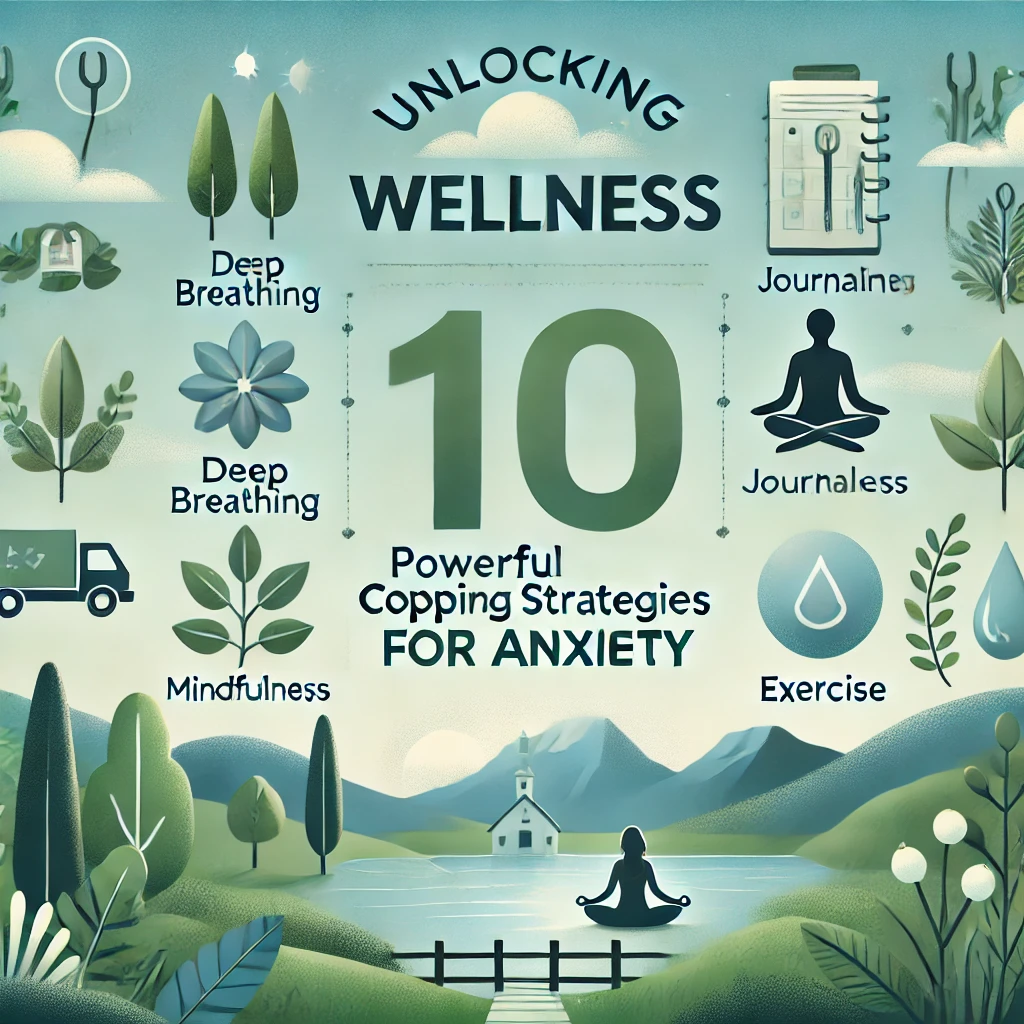Have you ever felt that familiar surge of anxiety—an unshakable tension in your chest, a flurry of thoughts racing through your mind? Anxiety can feel like a constant companion, lurking beneath the surface or crashing in like a wave, leaving us feeling overwhelmed and uncertain. The good news? You're not alone, and there are effective ways to manage it. Unlocking wellness and regaining control starts with understanding and embracing strategies that genuinely work. Let’s dive into ten powerful coping techniques that can empower you to face anxiety head-on, nurturing both mind and body in the process.
1. Mindful Breathing
One of the quickest ways to calm anxiety is through mindful breathing. Take a few moments each day to focus on your breath. Try inhaling deeply for four counts, holding for four, and exhaling for four. This breathing exercise can reset your nervous system, lowering your stress levels and making you feel grounded.2. Practice Gratitude Journaling
The act of gratitude journaling can be transformative. Writing down things you’re thankful for shifts your focus from what’s going wrong to what’s going right. Try jotting down three things you’re grateful for each day. Over time, this habit can rewire your brain to look for positive patterns, reducing anxiety and fostering a sense of peace.3. Limit Stimulants Like Caffeine
Caffeine may fuel our mornings, but it also intensifies anxiety symptoms. Try cutting back on caffeine, particularly in the afternoons, and notice if your anxiety levels dip. Replacing your coffee with calming herbal teas, like chamomile or lavender, can also be beneficial.4. Exercise Regularly
Exercise has a proven impact on anxiety. Engaging in regular physical activity releases endorphins, the body’s natural mood lifters. Whether it's yoga, running, or simply a brisk walk, moving your body each day reduces stress and can help alleviate anxiety symptoms.5. Set Healthy Boundaries
Often, anxiety stems from overcommitting or saying “yes” when we really mean “no.” Learning to set boundaries helps you manage your energy and stress levels. Politely decline invitations or obligations that don’t serve your mental well-being. Taking control of your schedule can drastically reduce anxiety.6. Practice Visualization
Close your eyes and visualize a peaceful, happy place where you feel safe. Picture it as vividly as possible, using all your senses. Visualization can help replace anxious thoughts with calming imagery, providing an emotional reset whenever anxiety strikes.7. Limit Screen Time, Especially Social Media
Spending too much time on screens, especially on social media, can amplify anxiety. Set boundaries for screen time and designate “phone-free” zones. Creating a healthier relationship with technology reduces the likelihood of being overwhelmed by constant notifications and online comparisons.8. Seek Out Calming Scents
Essential oils like lavender, bergamot, and eucalyptus can soothe anxiety. Keep a small roller bottle on hand, or add a few drops to a diffuser. Scents are powerful; they connect directly to your brain’s emotional center, making aromatherapy a fast-acting way to calm nerves.9. Learn to Accept Uncertainty
Life’s unpredictability can be unsettling, but learning to accept it is liberating. Practicing mindfulness and embracing the present moment, rather than focusing on the "what-ifs," can ease a lot of mental strain. Accepting that you can't control everything reduces anxiety significantly.10. Consider Professional Support
Sometimes, anxiety can feel too heavy to manage alone. Don’t hesitate to seek professional support. Therapy and counseling offer personalized coping strategies, and therapists can guide you in untangling underlying causes of your anxiety. Remember, asking for help is a strength, not a weakness.
Unlocking Your Wellness Journey
Managing anxiety isn’t about eliminating it entirely—it’s about understanding it and learning to respond in ways that serve you. Embrace these strategies, and allow yourself to feel empowered, capable, and resilient. Remember, you’re on a journey to wellness, and each small step you take is a victory worth celebrating.